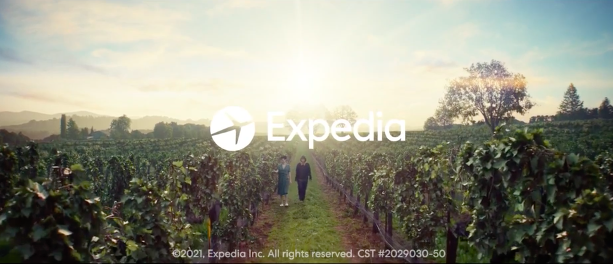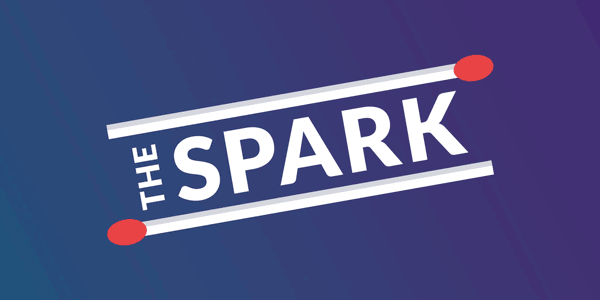Acronyms & AlgorithmsGoogle always keeps us on our toes (cookies, anyone?) and its latest announcement will have marketers everywhere learning their LCPs, FIDs, and CLSs.
With the forthcoming Page Experience algorithm update — rolling out this summer from mid-June to August — Google's Core Web Vitals (the aforementioned LCP, FID and CLS) will become much more influential in search ranking. LCP stands for Largest Contentful Paint and it measures website loading performance. FID, otherwise known as First Input Delay, measures how long it takes for a page to become interactive. Last but certainly not least, Cumulative Layout Shift (CLS) measures the visual stability of the web page.
In non-IT speak, marketers should look to improve their sites' visual and overall load times and ensure pages buttons don’t suddenly move when someone tries to click on them. Don’t worry though, Google launched a new Page Experience report and combined it with the existing Core Web Vitals report to help website owners prepare and spot issues that need to be addressed. While these updates may seem slightly, let’s say, nit-picky, the end goal is to provide a superior user experience — something we’re all aiming for (hopefully).
TL;DR: Google’s latest Page Experience update will see its Core Web Vitals become more influential in search ranking.
Pin Protection ProgramFun: Creating content for your brand’s Pinterest page. Not fun: Seeing said content “repurposed” by other accounts without your permission. Luckily, Pinterest’s new Content Claiming process will help stop Pin pickpockets in their tracks.
Through the new process, Pinners will be able to protect their content and determine how it can be used on the platform. Creators complete an application to receive approval to upload their original content and choose from enforcement options if the platform spots a stolen Pin. Options range from removing existing and future versions of the images from Pinterest (except those saved by the original creators) to blocking *all* existing and future image versions from Pinterest.
The more control a brand has over its content, the better — and with over 450M monthly users, there’s a lot of traffic and brand recognition at stake when Pins are used without credit. Especially now, as the rapid rise of NFTs has proven just how valuable digital content and intellectual property can be when it’s in its original form. Any measure the platform takes to guard against pilferers of Pins is sure to get a thumbs up from marketers everywhere.
TL;DR: Pinterest’s new Content Claiming process will enable creators to register their original content and manage its future Pin usage.
Hear to HelpWe all knew it was going to happen, it was just a matter of time. Now, we can officially welcome Facebook into the social audio fray. The platform announced a suite of audio tools it’s beginning to test and roll out over the coming months.
Not only will FB introduce live audio chat rooms (à la Clubhouse), it’s taking audio content creation to the next level with podcasts and Soundbites. Users will soon be able to listen to podcasts directly from the Facebook app and creators will be able to turn discussions within live audio chat rooms into recorded pods. Similarly, users will soon have the tools to create Soundbites: shareable, short-form audio clips.
For brands, these features may prove to be highly useful. Marketers can easily turn live audio conversations into lasting long-form content. Plus, Soundbite tools will make it simple to create quick clips for promoting said content (and other recorded audio, like interviews or speeches) across social media. Leave it to Facebook to take another app’s idea and make it, well, bigger and better.
TL;DR: Facebook will roll out several new live social audio and long- and short-form audio creation tools to users and creators over the coming months.
What Lit Us Up
A Little Vacay Goes a Long WayYou know that all-too-familiar feeling of craving something new ... and then immediately scheduling a haircut because you want change? Now picture yourself as a travel company getting ready for post-COVID travel. That haircut? It’s a new website, ad campaign, and digital rebrand — a reminder that sometimes all you need is a little self love to feel ready to take on the world again.
It’s the plan for Expedia, who, after many months of quarantine-induced self-reflection (a.k.a. consumer research), found that’s just what the doc prescribed. In a move almost as dramatic as box-bleaching your hair, the online travel agency launched a new app and website design, personalized the booking experience with a “virtual agent,” and added in a new itinerary building feature. The goal? To shake its reputation as a discount booking site and be seen as an end-to-end vacation resource — providing everything from inspirational travel content to digital tools for scoring the perfect room with a view.
Expedia’s putting its money where its appearance and user-experience is to differentiate itself from its competition and draw in those wanderlusty, stir-crazy, travel-hungry customers. In a time where the travel industry is being put to the test, Expedia chose to critically reflect on outdated processes and proactively respond to changing consumer needs. By aligning its own metamorphosis with the reemergence of the travel industry as a whole, Expedia’s coming out of quarantine lookin’ like it’s spent some time in the home gym.
TL;DR: Expedia launched a digital rebrand that includes a new website, ad campaign, and improved user experience based on hefty consumer research and self-reflection. (Was this email forwarded to you? Sign up here.)
|
-1.png?upscale=true&width=346&upscale=true&name=Tier%20One%20logo_color%20(1)-1.png)


